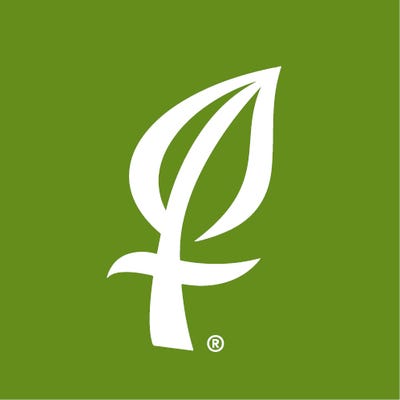July 1, 2020
EDITOR'S NOTE: The Farm Press Peanut Efficiency Awards are presented to winners during the annual Southern Peanut Growers Conference. The 2020 conference was delayed until 2021. The 2020 PEA winners will be honored at the 2021 conference.
Peanut farmers have no panaceas available to assure top yields and high grades.
The best ones, including the four 2020 Farm Press Peanut Efficiency award winners, follow finely tuned production systems tailored to specific growing conditions.
The 2020 winners are: Kirk Jones, Upper Southeastern states; Joe Mullek and sons Tim, Michael, and Mark, Lower Southeastern states; father and son, Glen and Aaron Martin, Southwest; and Van Hensarling, Mid-South.
Two of this year's winners grow only or mostly dryland peanuts; one carefully manages limited water resources; one depends on season-long timeliness to improve his odds. They all practice sustainable production practices and take advantage of every system available to improve production efficiency.
Keys for these outstanding growers include: timing, variety selection, rotation, conservation, water management, pest control, fertility and harvest efficiency.
Here is a quick look at some of the 2020 winners' keys to productivity.
Upper Southeast
Kirk Jones, Windsor, Va., says timeliness is key. It’s a lesson he learned from his grandfather James Wilson “Buddy” Jones and his father James Wilson Jones, Jr.
“Time is the main thing," he says. "Don’t put off tomorrow what you can do today. Get your peanuts planted on time. Make timely applications of fungicides or anything else that needs to be done.”
The timeliness approach works. The family historically has made yields approaching 4,500 pounds per acre and surpassing 5,000 pounds in good years.
The family farms 1,700 acres of both owned and rented land, producing cotton, corn, soybeans, wheat, peanuts and cattle in Virginia’s Isle of Wight County. Peanuts are Kirk’s favorite crop, his passion.
They planted Bailey, Virginia-type peanuts, on all 390 peanut acres this year. Bailey has been the family’s go-to variety for the past few years. “I like the way Bailey yields. I like the rankness of the vines because I feed the vines to my cows,” Kirk says.
J.W. and Kirk use a three to four-year rotation and like to stretch their rotation to four years when they can.
Lower Southeast
Two decades ago, the Mulleks started growing peanuts in Baldwin County, Ala., one of first in the area. Their farm remains somewhat unusual.
Tim, 50, Joe Mullek's oldest son, farms in partnership with brothers Michael, 44, and Mark, 43, in Summerdale, 20 miles from the Gulf of Mexico. They produce sustainable, high-yielding peanuts.
They farm 3,000 acres, a third in peanuts, 60% in 12Y, 20% Ga-06G and 20% FloRun 331. The 12Y offers higher yields and better disease tolerance. Most peanut producers in the area plant Ga-O6G.
They plant cotton on two-thirds of their acreage on a three-year rotation with peanuts. They plant wheat after peanuts, followed by two years of cotton; they get four money crops out of the rotation. They don't irrigate.
Their production system centers heavily on a sustainable, no-till approach. Except for the peanut digger breaking a third of the land every third year, the soil goes unbroken. Soil is a silent employee, working for them and taming some variables that can stress an operation and its owners.
In 2019, they averaged 4,852.5 pounds per acre with exceptional grades and average selling prices of $425 per ton. Their 2020 wheat averaged 60 bushels and 2019 cotton averaged two bales.
Southwest Region
Father and son, Glen and Aaron Martin, say water is key to producing high peanut yields on the sandy soils near Wellman, Texas.
"We've cut back on the number of acres of peanuts we grow, so we're not trying to plant more acres than we can water but keep enough water to make yields," Glen says.
Glen and Aaron, through A&G Farms partnership, grow Georgia 09B, a runner-type variety. In 2019, they averaged 5,619 pounds per acre and 5,697 pounds in 2018 at $475 per ton.
Maintaining plant health is also essential, including crop rotation and use of pre-emergent herbicides and inoculants. One of the chemicals in their arsenal is Velum nematicide.
"We've started using Velum on every acre of peanuts. It keeps the vines healthy in the fall when we start having disease or weather issues that could make them crash," Glen says. "It's expensive, but it's worth it."
Glen and Aaron also credit their crop consultant Mark Scott, their wives and their employees for their success.
"We couldn't do any of this without good employees," Aaron says.
Glen and Aaron, generational peanut farmers, proud PEA winners, follow dad and grandad James Martin, the first PEA winner for the Southwest in 2000.
Mid-South
"If it weren't for peanuts, I probably would not be farming," says Van Hensarling, Richton, Miss. "Peanuts are about the only crop that makes money."
Hensarling has grown peanuts for 23 years on his south Mississippi farm. He farmed with his dad while still in high school, using his dad's equipment but making his own crops. He farmed leased land on his own after high school and bought his first farm in 1981, raising soybeans and wheat.
"I enjoy growing peanuts," Hensarling says. "I started during the quota system. I transitioned from soybeans and wheat to 100% cotton in 1995 and 1996. I added peanuts in 1997. I had to gear up for peanuts. Fortunately, I had an understanding banker."
He farms with his wife, Anita, and sons, Jerid, 40, and Brad, 37.
Hensarling embraces efficiency, including producing all but 75 of his 800-acre peanut crop without irrigation.
"To make yields, we have to look at every aspect—rotation, fertility, weed control, fungicides, and harvest efficiency. We have to map out all production areas. There is no one silver bullet in it."
He averaged 5,411 pounds on 725 dryland and 6,500 pounds on 75 acres of irrigated peanuts in 2019.
The four winners, were to be honored July 18 at the Southern Peanut Growers annual conference in Panama City Beach, Fla. The conference has been cancelled due to the COVID-29 pandemic, so the 2020 winners will be recognized at the 2021 conference.
Read more about:
Peanut Efficiency AwardAbout the Author(s)
You May Also Like






